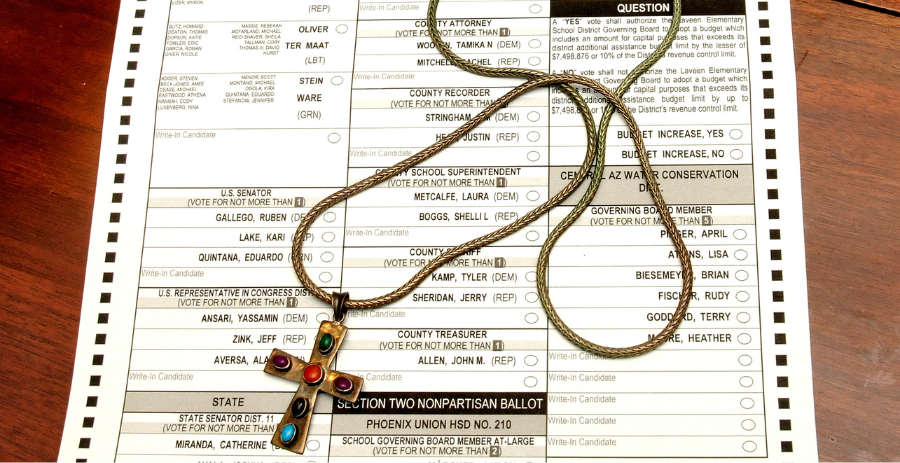2024 Election News
Study Reveals 32 Million Christians May Sit Out Upcoming Election

A recent study from Arizona Christian University indicates a significant turnout issue among churchgoing Christians in the upcoming election. Researcher George Barna reveals that up to 32 million regular church attendees might choose to abstain from voting.
According to Barna, the implications of this trend may have a greater negative impact on Donald Trump’s campaign than on Kamala Harris’s. He notes that this dilemma could be mitigated if pastors actively encourage their congregations to fulfill what he describes as their biblical duty to vote.
Barna estimates that as many as five million faithful churchgoers could be motivated to cast their ballots through such simple exhortations. This change, he suggests, could significantly influence the election’s outcome.
Len Munsil, president of Arizona Christian University, has labeled the findings a “blockbuster report,” emphasizing that Christians have the potential to be pivotal in several key federal and state contests.
While Munsil, who has a history in political advocacy, does not advocate for specific political alignments among pastors, he highlights a genuine desire among congregants for guidance on political issues from a biblical perspective.
He acknowledges that while the congregation seeks biblical reasoning for voting, they do not want direct instructions on how to cast their ballots. This perspective reinforces the need for pastors to engage with politically relevant topics without explicitly pushing for a particular candidate.
Munsil draws attention to Proverbs 29:2, arguing that a lack of pastoral discussion on political issues could hinder the establishment of a government that aligns with Christian values and eases societal unrest.
Arizona Christian University’s mission centers on integrating biblical teachings into a liberal arts education, aiming to equip graduates for influential leadership roles.
The university, originally established in 1960 and renamed in 2011, is rooted in Munsil’s long-standing commitment to promoting conservative values in public policy.
Barna’s study underscores the historical voting patterns of Christian churchgoers, noting that they have typically leaned toward conservative candidates. However, he warns that fewer churchgoers are expected to participate compared to the 2020 election.
If this trend continues, Barna suggests it could be detrimental to Trump’s re-election efforts, especially given the narrow margins that often decide swing state outcomes.
The report asserts that the absence of Churchgoers at the polls presents an opportunity for pastors to motivate their congregants toward civic engagement.
Barna further identifies that the lack of interest in participating in the upcoming elections extends beyond the Christian community, affecting as many as 104 million individuals of various faiths.
A primary reason cited for this disengagement is an overall disinterest in politics, coupled with a belief that candidates do not resonate with their values or a distrust in the election processes.
The study identifies a lack of sufficient outreach by churches as a critical factor. Only half of the churches encourage voting among their congregants, while a similar proportion fails to provide educational materials about biblical stances on social and political issues.
Barna argues that churches have the potential to significantly impact turnout rates by actively engaging in voter education and motivation, given the pressing issues at stake.
The survey results also reveal a division among church attendees regarding their churches’ involvement in the electoral process. While a plurality prefers maintaining the current level of engagement, nearly half lean towards either an increase or decrease in church political involvement.
Additionally, a sizable majority view activities such as voter registration and providing issue-oriented information as beneficial to the community.
Conducted in early September, Barna’s survey sampled 2,000 voting-age Christians who attend church regularly, yielding insights into how religious beliefs intersect with political participation.


















